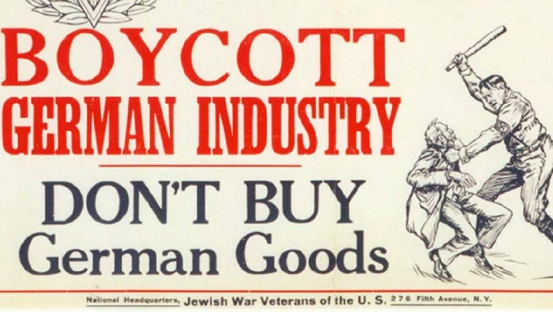×
The Standard e-Paper
Kenya’s Boldest Voice

A few weeks after Adolf Hitler was appointed chancellor by the President of Germany in January 1933, the global Jewish community declared an economic and financial war on “the New Germany”.
Global Jewish leaders together with powerful international Jewish financial interests launched a boycott of Germany and its products with the aim of crippling her already struggling economy and to bring down the new Hitler regime.